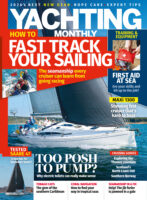Engine breakdown still biggest call out
April 2011 was the busiest April ever in RNLI lifeboat history with lifeboat launches that month almost doubling to 1,029 when compared to 672 in 2010. The number of people rescued was 1,038 – a 74% increase on the previous April. Not surprising when April 2011 was the warmest April in the UK for 100 years.RNLI lifeboat launch figures were also high in January, October and November as these too became record months for the RNLI. January saw a total of 346 lifeboat launches, up over 15% on 2010, October 709, up 14%, and November 401 up over 14%.
2011 saw RNLI lifeboats launch 8,905 times around the coast of the UK and Ireland, rescuing 7,976 people. Last year was the second busiest for launches according to RNLI records.* The 4,800 dedicated lifeboat crew – 95% of whom volunteer their time to the charity – spent a collective 203,000 hours at sea and are on-call 24/7.
Over half (51%) of all launches were to people at sea for fun. Launches to sail pleasure craft rose slightly from 1,481 in 2010 to 1,557 in 2011, an increase of 5%. There were also slightly more launches to manual pleasure craft, up from 974 in 2010 to 1,070 in 2011.Meanwhile, launches to powered pleasure craft fell from 2,178 in 2010 to 1,934 in 2011, a decrease of 11%. Machinery failure was the most common cause for rescue, with 1,641 of all launches responding to vessels with mechanical problems.
With leisure craft consistently accounting for such a significant proportion of launches, the charity is reminding boaters of some key sea safety advice.
RNLI Operations Director, Michael Vlasto, says: ‘I would like to say a huge “thank you” to all those who support the RNLI, by volunteering their time or by making a donation – our charity receives less than 2% of its income from government sources, so we absolutely depend on the support of the public.
‘These new figures show just how much time our volunteer crews sacrifice to help those in trouble at sea – but they also spend time training, and the 203,000-plus hours spent at sea is certainly a measure of their commitment.’



